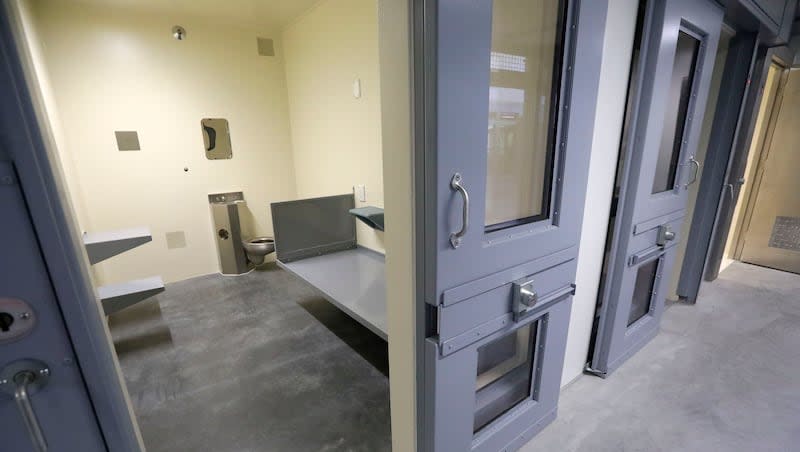Justice Department finds Utah Department of Corrections discriminated against transgender woman

The United States Department of Justice found that the Utah Prison System violated the Americans with Disabilities Act by discriminating against an incarcerated person on the basis of gender dysphoria.
The Justice Department opened up its investigation after a transgender women filed a complaint saying that the Utah Department of Corrections denied her requests for reasonable modifications and health care related to gender dysphoria.
According to the letter from the Civil Rights Division of the Justice Department, the department was determined to have violated the ADA in three different ways: denying equal access to health care services, failing to make reasonable modifications to policies or procedures and imposing criteria for gender dysphoria treatment and assessment that isn’t required for other conditions.
“We have been working to address this complex issue, and were blindsided by today’s public announcement from the Department of Justice,” Brian Redd, executive director of the Utah Department of Corrections, said in a statement released Tuesday. “We have also taken steps on our own, and as a state, to address the needs of inmates while maintaining the highest safety standards. We fundamentally disagree with the DOJ on key issues, and are disappointed with their approach.”
The Utah Department of Corrections would not answer further inquiry from the Deseret News.
In the fact finding portion of the announcement, the Justice Department said the complainant experienced symptoms of gender dysphoria for years before entering jail.
A health care professional contracted by the UDOC determined that she met the criteria for treatment of gender dysphoria. There was a multistep process for ordering treatment.
It took nine months for UDOC to provide the complainant with a diagnostic assessment for gender dysphoria and an additional six months to prescribe her hormone therapy. She repeatedly asked UDOC to give her treatment.
“Incarcerated individuals at UDOC who seek health care for medical conditions other than gender dysphoria are typically not required to complete an unnecessarily protracted, multistep process,” the Justice Department wrote.
The Justice Department said the complainant requested female prison-issued clothing, to be assigned to female housing and to not be subject to cross-gender pat searches. She made these requests through ADA request forms and to UDOC directly. The Justice Department said those requests were ignored.
The remedial measures the Justice Department said the UDOC should adopt include revising its policies to ensure individuals with gender dysphoria have equal access to all UDOC services, including health care.
The UDOC would also have to give federal officials access to files and written status reports about the implementation of the changes as well as train employees to ensure ADA compliance.
“We hope to work together with you to resolve this matter cooperatively through a court-enforceable consent decree that brings UDOC into compliance with the ADA,” the Justice Department wrote. “If we are unable to reach such a resolution, the Attorney General may initiate a lawsuit.”
Assistant U.S. Attorney General Kristen Clarke of the Justice Department’s Civil Rights Division said in a statement that the division is committed to ensuring that prisons do not discriminate against people with disabilities.
“All people with disabilities including those who are incarcerated are protected by the ADA and are entitled to reasonable modifications and equal access to medical care, and that basic right extends to those with gender dysphoria,” Clarke said.
During the 2024 legislative session, the Utah Legislature passed a bill requiring the Department of Corrections or county jail to assign inmates to housing based on biological sex. Gov. Spencer Cox has yet to sign the bill.
The bill lays out a path for transgender people to request housing that corresponds with their gender identity after the department or county jail performs a security analysis and reviews medical records and protocol.
After the bill passed, Equality Utah said “we were successful in amending the legislation to codify best practices from the federal Prison Rape Elimination Act (”PREA”) to protect both transgender and non-transgender inmates.” The organization said the amendments that the bill passed with were “favorable.”

